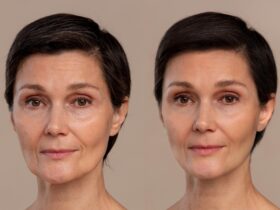Depression often coexists with sleep disturbances, and finding effective treatments is crucial for managing symptoms and improving overall well-being. In the UK, both prescription and over-the-counter (OTC) sleeping medications are available options. buy tablets for depression online or any authorized pharmacist. This review aims to compare the benefits and drawbacks of these two categories of medications for individuals with depression.
Prescription Sleeping Medications:
Benefits:
- Efficacy: Prescription sleeping medications, such as benzodiazepines (e.g., diazepam) and non-benzodiazepine hypnotics (e.g., zolpidem), are often more potent and fast-acting than OTC options, making them effective for severe or persistent sleep disturbances.
- Customization: Healthcare professionals can tailor prescription medications to individual needs, adjusting dosage and formulation based on factors such as age, weight, and coexisting medical conditions.
- Monitoring: Regular follow-ups with healthcare providers are typically required for individuals using prescription sleeping medications, allowing for ongoing monitoring of efficacy, side effects, and potential drug interactions.
Drawbacks:
- Side Effects: Prescription sleeping medications may cause significant side effects, including drowsiness, dizziness, confusion, and memory impairment. Long-term use can lead to tolerance, dependence, and withdrawal symptoms upon discontinuation.
- Dependency Risk: There is a risk of developing dependency or addiction with certain prescription sleeping medications, particularly benzodiazepines, which can be problematic for individuals with a history of substance abuse or addiction.
- Cost and Accessibility: Prescription medications may be more expensive and less accessible than OTC options, requiring a doctor’s appointment and prescription refill.
Over-the-Counter Sleeping Medications:
Benefits:
- Accessibility: OTC sleeping medications, such as antihistamines (e.g., diphenhydramine) and herbal supplements (e.g., melatonin), are readily available without a prescription, making them convenient for individuals seeking immediate relief from mild sleep disturbances.
- Low Cost: OTC medications are often more affordable than prescription options, making them accessible to individuals with limited financial resources or healthcare coverage.
- Natural Options: Herbal supplements, such as valerian root or chamomile, offer natural alternatives to synthetic medications and may have fewer side effects for some individuals.
Drawbacks:
- Efficacy: OTC sleeping medications may be less potent or effective than prescription options, particularly for individuals with severe or chronic sleep disturbances.
- Limited Monitoring: Without oversight from a healthcare provider, individuals using OTC medications may not receive adequate monitoring of their sleep patterns, symptoms, or potential side effects.
- Interactions and Safety: OTC medications can interact with other medications or medical conditions, and their safety and efficacy may vary between individuals. Some herbal supplements may also lack standardized dosing and quality control.
Conclusion:
Both prescription and over-the-counter sleeping medications offer benefits and drawbacks for individuals with depression and sleep disturbances. While prescription medications may provide greater potency and customization under medical supervision, they also carry a higher risk of side effects, dependency, and cost. OTC options offer convenience, accessibility, and natural alternatives but may be less effective for severe or chronic sleep disturbances and lack adequate monitoring. Buy tablets for depression from any online legitimate pharmacist.






